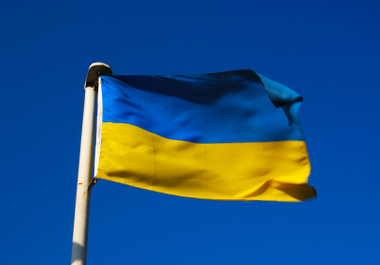
Feb 24, 2022 | News
As the Russian Federation launches a military invasion of Ukraine, its forces and those of other parties to the conflict must respect international law and protect civilian lives, the International Commission of Jurists (ICJ) urged today.
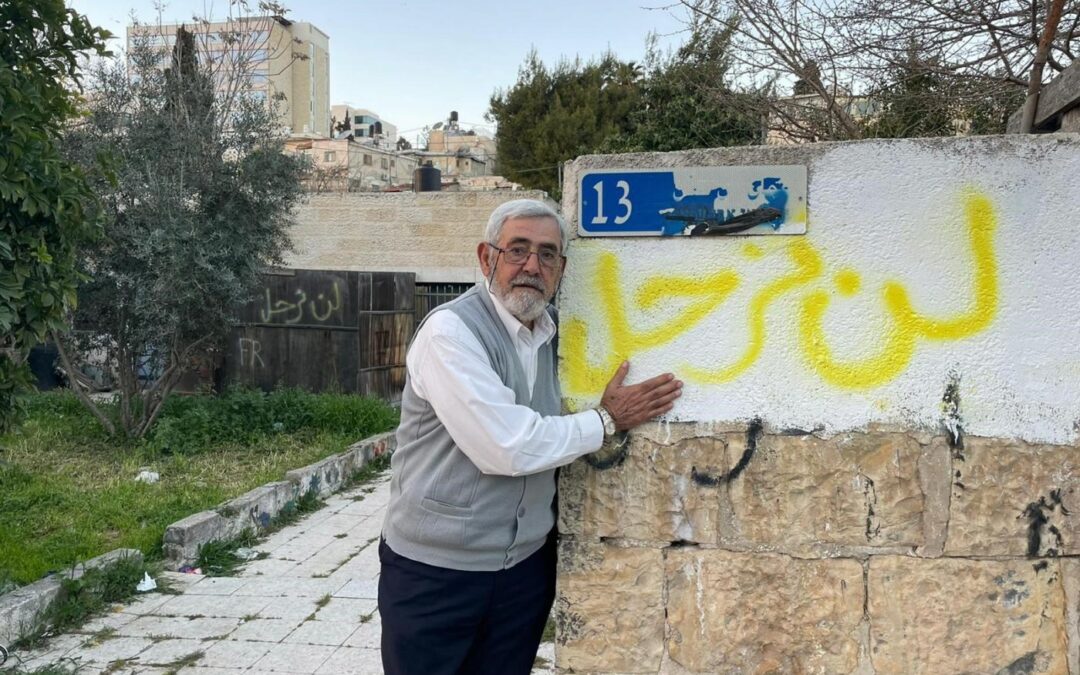
May 11, 2021 | News
The International Criminal Court (ICC) must immediately investigate the forced eviction of Palestinian families and residents in Sheikh Jarrah and other neighbourhoods in East Jerusalem, as well as any indiscriminate and disproportionate attacks against civilians in the Gaza Strip, the ICJ said today.
The investigation must establish whether any serious violation of international humanitarian law, such as indiscriminate or disproportionate attacks against civilians, the forced deportation of Palestinians and the transfer of Israeli settlers into occupied East Jerusalem, as well as the extensive destruction and appropriation of property, have taken place in Sheikh Jarrah and in Gaza. Following the opening of an investigation by the ICC Office of the Prosecutor, if warranted, Israeli officials should be prosecuted for such crimes to ensure accountability. As confirmed by the ICC Pre-Trial Chamber I, the Court’s territorial jurisdiction “extends to the territories occupied by Israel since 1967, namely Gaza and the West Bank, including East Jerusalem.”
Evictions against Palestinians in Sheikh Jarrah were ordered by the Jerusalem District Court following legal proceedings initiated by Israeli settlers organizations under Israeli law. The Supreme Court was due to rule on 10 May 2021 on challenges against evictions brought by Palestinian families, yet, it decided to postpone the hearing at the request of Israel’s Attorney-General.
“Evictions in Sheikh Jarrah are part of a cynical campaign by the Israeli authorities to purge occupied East Jerusalem from its Palestinian civilian population,” said Said Benarbia, the ICJ MENA Director.
The ICC must also ensure accountability for unlawful attacks targeting civilians and civilian objects in connection to the hostilities between Israel and Palestinian armed groups in Gaza. Since 2007, Israel has imposed a full closure on Gaza, which has resulted in a major humanitarian crisis, and has led to significant escalation of hostilities in 2008-09, 2012 and 2014, where thousands of Palestinians have been killed and injured. On 10 May 2021, Hamas started firing rockets against Israel following a crackdown on Palestinian worshippers in the al Aqsa compound in Jerusalem. In response, Israel has carried out multiple airstrikes in Gaza, which have reportedly caused the death of at least 24 people, including nine children. All parties to the conflict are prohibited from conducting indiscriminate and disproportionate attacks, which may amount to war crimes under the Rome Statute.
“The ICC must ensure that all those responsible for ordering and carrying out these attacks be held criminally accountable,” Benarbia added.
Since April 2021, Palestinians peacefully demonstrating against the evictions in Sheikh Jarrah, a decades-long legal battle, have been subjected to violence by Israeli settlers and Israeli security forces. Earlier this year, the Jerusalem District Court ordered that several Palestinian families be evicted from the neighborhood. According the UN Office of the High Commissioner for Human Rights, “at least 218 Palestinian households in East Jerusalem, including the families in Sheikh Jarrah, have eviction cases filed against them”, and overall “970 people, including 424 children, [are] at risk of displacement.”
As part of the Israeli crackdown on Palestinians, Israeli security forces have also been firing tear gas and employing other less-lethal weapons against people praying at the Al Aqsa mosque in Jerusalem purportedly in crowd-control operations. According to the Palestinian Red Crescent, more than 200 demonstrators have been injured as a result of the use of such less-lethal weapons.
Israeli forces have also been preventing gatherings of Palestinians at Damascus Gate in East Jerusalem during the night hours of the month of Ramadan when many Muslims gather for prayer and breaking of the fast at sunset, and have responded with excessive force to the ensuing demonstrations.
Israel has a duty to respect the right to peaceful assembly and freedom of religion of Palestinians in East Jerusalem. Israel’s use of excessive force against Palestinian demonstrators and the crackdown on Palestinian worshippers violate its obligations under international human rights law
“Israeli authorities must respect and ensure the right of Palestinians to protest and challenge decades of prolonged unlawful occupation and related abusive practices, and immediately end the use of disproportionate and unlawful force to disperse protesters”, Benarbia said.
Contact
Said Benarbia, Director, ICJ Middle East and North Africa Programme, t: +41-22-979-3817; e: said.benarbia(a)icj.org
Asser Khattab, Research and Communications Officer, ICJ Middle East and North Africa Programme, e: asser.khattab(a)icj.org
You can read this press release in Arabic here or download a PDF version of it in English here.
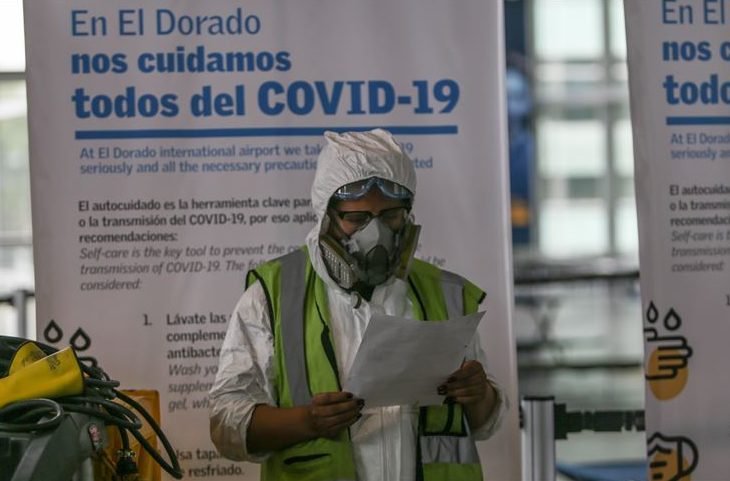
Apr 8, 2020 | Feature articles, News
A Feature Article by Rocio Quintero, Legal Adviser, ICJ Latin American Programme, based in Bogota.
Throughout several decades, a large number of Colombians have been victims of serious crimes related to the ongoing armed conflict. In particular, human rights defenders have been targets of serious human rights violations and abuses, such as killings, death threats, and harassments.
Just this year, the United Nations High Commissioner for Human Rights (OHCHR) has received information of 56 possible cases of killings of human rights defenders. Unfortunately, the COVID-19 outbreak has not stopped the violence against human rights defenders.
In that regard, since the first confirmed case of COVID-19 in the country on 6 March 2020, the Organization of American States (OAS) and International Amnesty has reported six killings. The perpetrators of those crimes have not been identified yet.
Human rights violations and abuses against local communities have not stopped either. Quite the opposite seems to be true.
In that regard, it is said that armed groups, including paramilitary groups and new groups made up of dissident FARC-EP members, are taking advantage of the outbreak to commit illegal actions with fewer constraints, mainly, in rural areas of the country.
Among these actions, it should be highlighted the enforced displacement of 250 people and the forced confinement of 770 families due to combats between a paramilitary group and a guerrilla group. Both actions took place in the pacific region of the country, an area where the conflict has intensified after the peace agreement. In addition, at least three ex-members of the FARC-EP have been murdered in March 2020.
Despite the seriousness of the situation described above, the Colombian government response to the COVID-19 crisis has focused on the creation and implementation of non-conflict-related measures.
In that regard, the Government has decreed various and vital regulations to mitigate the social and economic impact created by the virus. Among others, the president declared a state of emergency and a mandatory 19-day national quarantine that started on 25 March 2020.
The Government also established a program of economic and social aid for those who will be affected most by the quarantine.
None of the measures were designed bearing in mind the particular situation of human rights defenders. Consequently, their protection is not a central element of the Colombian pandemic policies.
Since the implementation of the peace agreement and victims’ rights are not top priorities of the current Government, the approach adopted is not entirely unexpected.
Although, to be fair, it should be recognized that the State programmes for the implementation of the peace agreement have continued operating during the pandemic.
It might be argued that the pandemic has the potential to affect predominantly human rights that have not been directly linked with the internal conflict.
Therefore, following this point of view, the prioritization of non-conflict-related measures is justified and required.
Although this position is based on a valid premise, which is that the COVID-19 pandemic creates several challenges that go beyond conflict-related human rights problems, it ignores a central element of Colombian reality: the existence of an ongoing armed conflict.
Currently, the conflict affects a considerable part of the Colombian population directly, including the majority of human rights defenders. In that regard, last year, it was reported illegal actions related to the internal armed conflict in at least 10 out of 32 departments of Colombia.
In this context, ignoring the importance of the conflict might lead to the implementation of ineffective pandemic measures. This is because, in conflict zones, the protection of human rights requires addressing the specific challenges that the pandemic has created in those territories.
For instance, the presence of illegal groups can prevent local communities from getting tested for COVID-19 and access to health services. Likewise, due to the quarantine, illegal groups might identify easier the location of human rights defenders and retaliate against them.
In relation to human rights defenders, it should also be highlighted the problems related to access to adequate protection measures. In that regard, Amnesty International has denounced that the protection measures for some human rights defenders have been reduced due to the pandemic.
In a similar way, a local NGO expressed concerns for the decision of the National Protection Unit to suspend indefinitely the sessions of the commission where protection measures are defined.
In light of the above, beyond political considerations and the general Government’s priorities, it is imperative that the Government adopts a more comprehensive approach to tackle the pandemic.
It should address the differential impact the pandemic might have on people who lead social and legal transformations in the conflict zones of the country.
In particular, it should implement or adapt protection measures to be effective during the COVID-19 crisis. Similarly, the right to an effective remedy and reparation should also be not only guaranteed, but realized, in compliance with international standards.
Additionally, it is also important that the national Government reinforce its efforts to obtain a humanitarian ceasefire by all illegal groups during the COVID-19 crisis.
A total ceasefire would contribute to (i) protecting the civilian population for violent actions, (ii) implementing the pandemic measures in conflict zones, and (iii) avoiding a proliferation of the virus in vulnerable communities.
This is a crucial measure that has already been requested by national civil organisations, the Head of the UN Verification Mission in Colombia, the OAS, and some parliamentarians.
As yet, only one illegal group has accepted a ceasefire: the National Liberation Army (Ejército de Liberación Nacional, ELN), the largest active guerrilla in Colombia, who declared a unilateral ceasefire during April.
To conclude, acknowledging the importance of the conflict is essential to tackle the human rights implications of the COVID-19 crisis.
This is not only necessary to have comprehensive pandemic policies, but also to make sure that the problems and needs in the conflict zones are not neglected and aggravated during the pandemic.
On this point, as recently stated by UN Secretary-General, people who are most vulnerable during a conflict are also “most at risk of suffering “devastating losses” from the disease.”
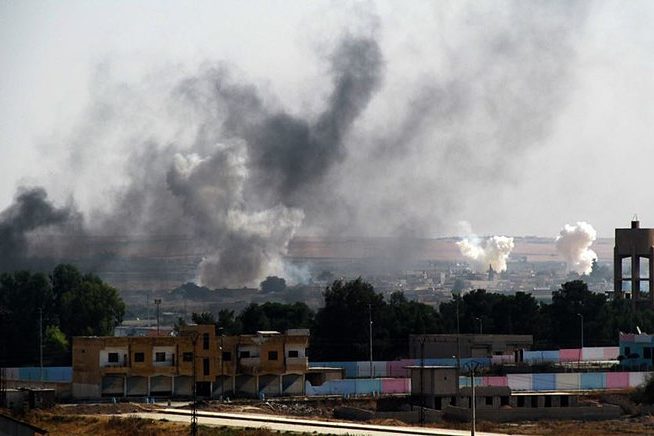
Oct 15, 2019 | News
Today, ICJ called on Turkey to comply with its obligations under the UN Charter, international humanitarian law and international human rights law, immediately end its military operations in Syria, and protect and ensure the protection of the Syrian civilian population.
The ICJ also reiterated its call on all parties to the Syrian conflict to respect and comply with international humanitarian law and international human rights law.
On October 9, Turkey initiated operation “Peace Spring” in Rojava, the Kurdish-led Syrian Democratic Forces (SDF)-held territory in north-east Syria, with the stated aim of securing Turkey’s border, “fighting terrorism” and facilitating the return of refugees to Syria. Turkey claimed to be acting pursuant to its right to self-defence under article 51 of the UN Charter, as well as UN Security Council resolutions on the fight against terrorism.
The ICJ recalled that none of these UN Security Council resolutions authorizes the use of armed force in violation of international law, and that the UN Charter prohibits the use of armed force by States, save when authorized by the UN Security Council or in self-defence.
Use of force in self-defence is lawful only when necessary to repel an armed attack and when proportionate to such attack. Military operations failing to abide by such requirements are in breach of the UN Charter.
“Turkey’s military operations violate the UN Charter and exemplify how the banalization of the illegal use of armed force continues to erode and dismantle the very fabric of the international legal order,” said Said Benarbia, the ICJ MENA Programme Director.
He added, “Instead of standing by while international law is being violated, the UN Security Council must take swift, appropriate measures to address the situation and to restore and maintain international peace and security.”
While UN Security Council member States have failed to find an agreement on even a statement on Turkey’s military operations in Syria, Turkish military operations continue to have a devastating impact on the general population, including multiple civilian casualties, attacks against civilian objects, including medical facilities and water supplies and infrastructure, and the displacement of more than 150,000 people, mainly civilians.
Turkish forces and the Turkish-backed armed groups have allegedly been responsible for violations of international humanitarian law and international human rights law. Members of one of these groups, the Ahrar Al-Sharqiya, have been accused of the extrajudicial execution of at least nine civilians, among whom is Kurdish politician and women’s rights activist Harvin Khalaf; torture and other ill-treatment; kidnapping; and looting and seizure of private property.
Turkey’s Defence Ministry said 595 “terrorists” were “neutralized” since the start of “Peace Spring.”
Under international humanitarian law, parties to an armed conflict must respect and protect the civilian population, and refrain from any direct, indiscriminate or disproportionate attack against civilians and civilian objects. International human rights law also continues to apply during the conflict.
“Turkish authorities must investigate and prosecute unlawful killings committed in the context of operation “Peace Spring,” including extrajudicial executions amounting to war crimes,” Benarbia said.
He added, “If no action is taken by these authorities, States must act, collectively and individually, to hold to account all those responsible for such crimes.”
Contact
Said Benarbia, Director of the ICJ Middle East and North Africa Programme, t: +41-22-979-3817; e: said.benarbia(a)icj.org
Syria-Turkey operations-News-Press releases-2019-ARA (Arabic version, in PDF)
Syria-Turkey operations-News-Press releases-2019-TUR (Turkish version, in PDF)
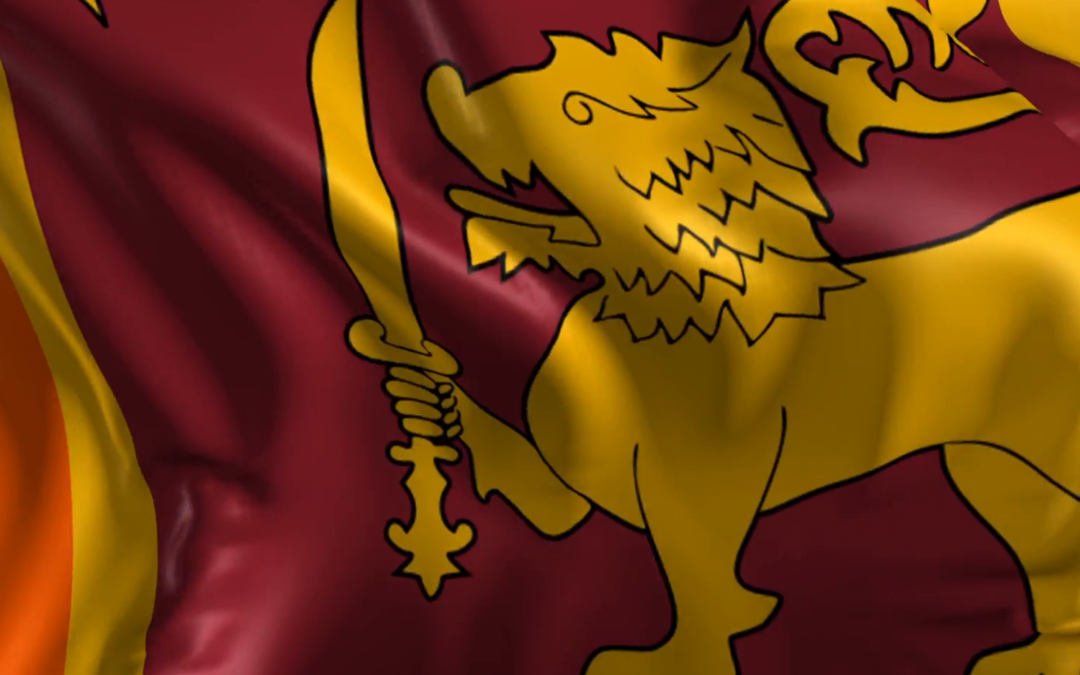
Feb 7, 2019 | Advocacy, Non-legal submissions
The ICJ has submitted a written statement on Sri Lanka to the Human Rights Council ahead of its 40th Session in Geneva.
Almost ten years after Sri Lanka emerged from a period of conflict and massive human rights violations, the Government of Sri Lanka still has largely failed to implement its human rights obligations and commitments as reflected in Resolution 30/1.
The ICJ statement focuses on two of four transitional justice mechanisms which the Government committed to establish under the Resolution: (a) the judicial mechanism with special counsel to investigate violations of human rights and international humanitarian law; and (b) the office of missing persons. It highlights how female victims of war are uniquely impacted by the Government’s failure to implement the commitments made before the UNHRC and underscores the importance of holistically including women when such measures are implemented.
Recommendations:
The ICJ considers that the gravity and character of the crimes under international law committed in Sri Lanka, and the failure of the Government of Sri Lanka to meet its obligations and commitments to ensure justice for such crimes including as provided for in resolution 30/1, means that referral to the International Criminal Court or the creation of another international mechanism to facilitate criminal accountability would be fully warranted. If however the Council does not choose to pursue these options at this stage, the ICJ urges the Council at minimum to:
- Continue the monitoring of Sri Lanka through the adoption of a new resolution to ensure that the Government complies with all its obligations and commitments as reflected in resolution 30/1.
- Provide for OHCHR to develop, with the Sri Lankan Government, an implementation strategy with definitive timelines to ensure that the time afforded under the new resolution is utilised to expedite the implementation of measures assured under Resolution 30/1.
- Encourage Member States to exercise universal jurisdiction in order to bring perpetrators to justice.
The ICJ urges the Government of Sri Lanka to:
- Take immediate measures to establish the judicial mechanism with international involvement as contemplated under operative paragraph 6 of Resolution 30/1. The mechanism should ensure gender parity, be accessible for women in civil society, and allow female victims to fully participate in the process.
- Spread awareness regarding the importance of certificates of absence and confirm to the community that issuance of a certificate will not result in the end of efforts to find the person.
- Ensure an overall gender strategy is integrated in all other transitional justice mechanisms that are yet to be established so that structural injustices against women, especially in terms of discrimination and lack of participation, are addressed.
(full text of submission, in PDF: UN-HRC40-SriLanka-WrittenStatement-2019-EN)





